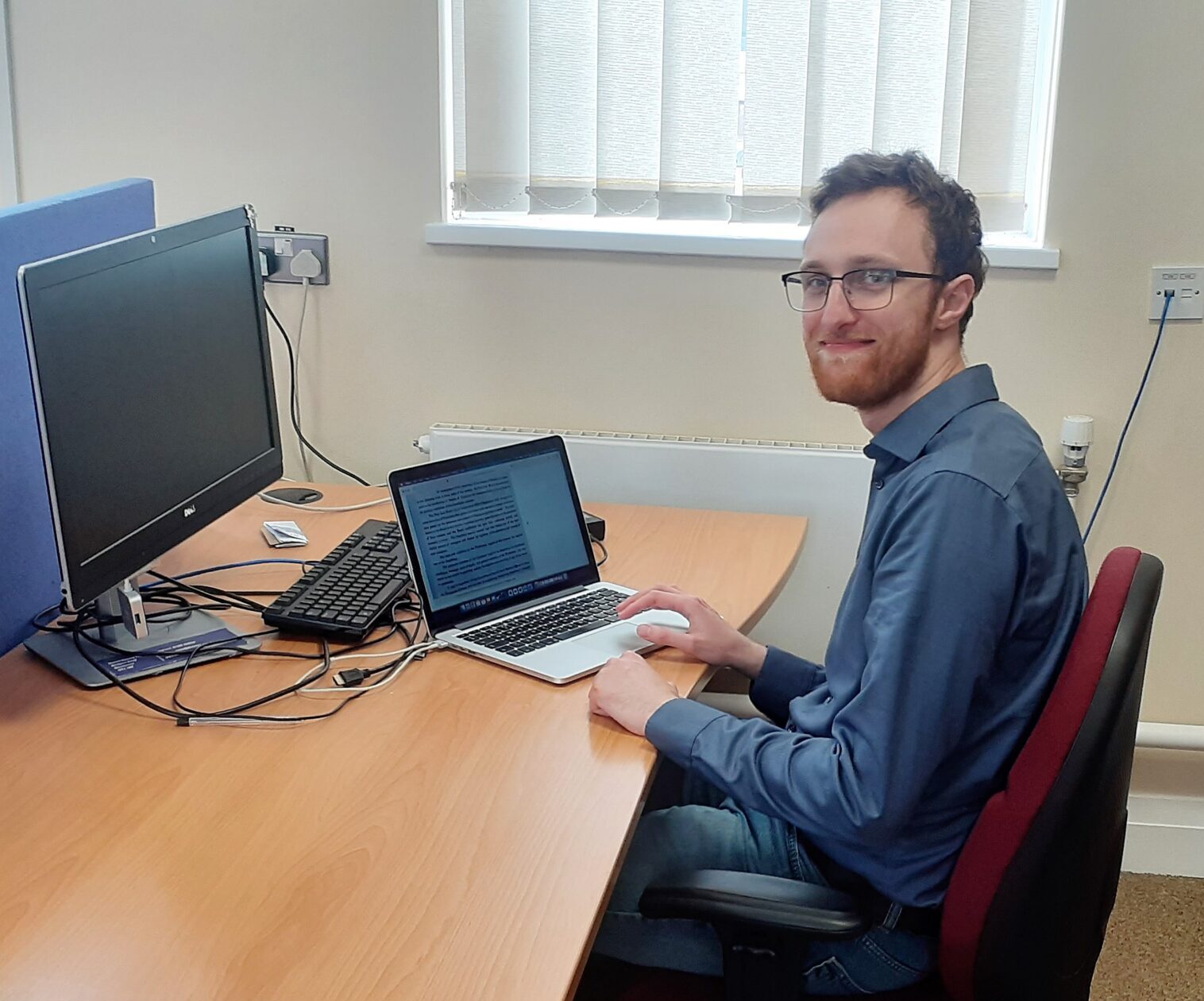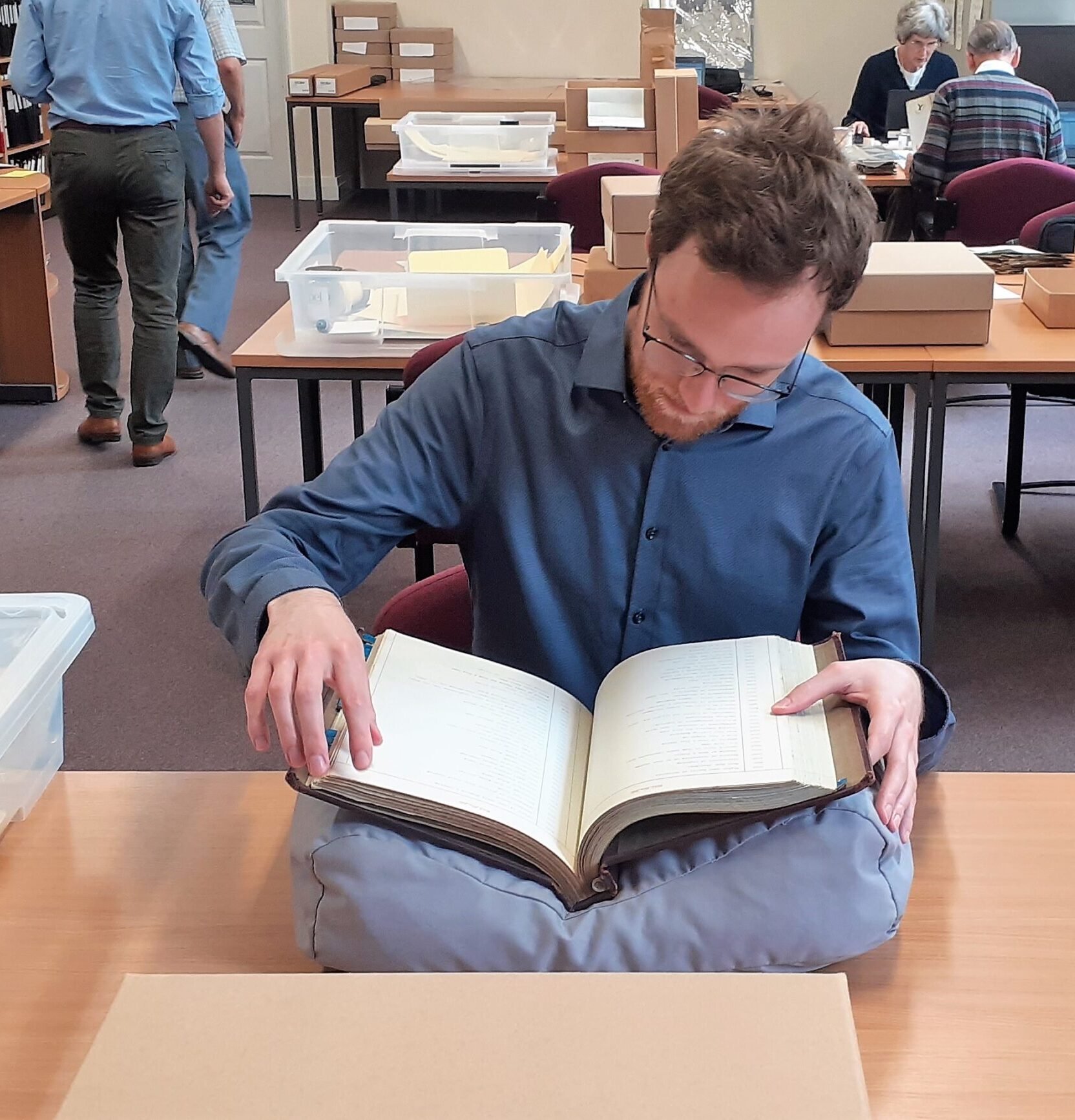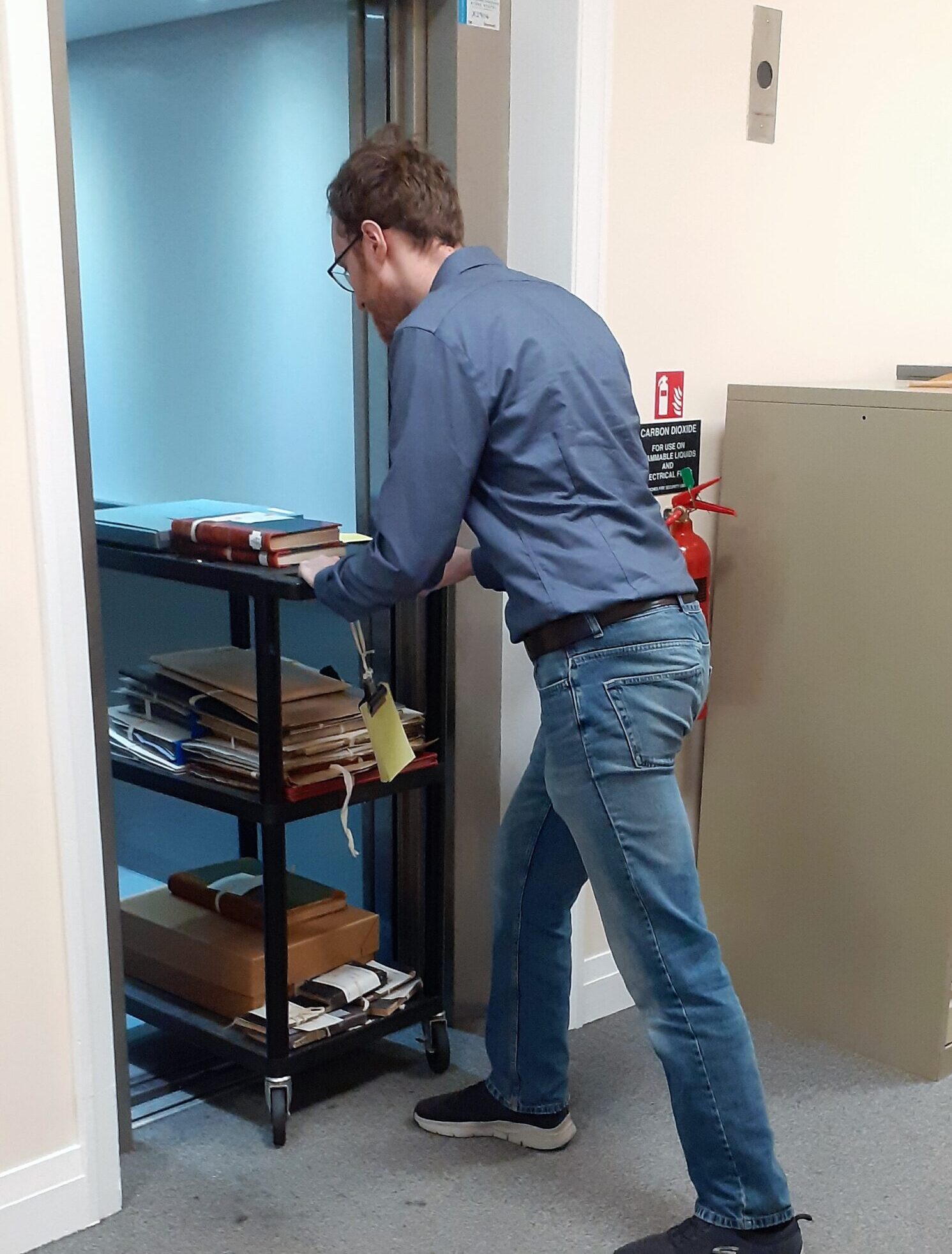Through four weeks in June and July 2023, Dorset History Centre hosted two students on work experience placements. During this month, they were given the opportunity to learn about what DHC does and how we work. In this blog, Ben gives us his thoughts on the placement…
—

Hi, I’m Ben Corben-Hale, a history student at Bournemouth University going from second to third year, doing my work experience placement at Dorset History Centre (DHC). You will be seeing other blogs and/or tweets from me and my fellow student Molly Butcher, but I wanted to talk more about my experience working here. Normally, I work in a supermarket on weekends, so I expected this to be a nice change of pace, and I was not wrong! Every day has been unique, with some true surprises such as recording what kinds of insects and other pests are around that might cause damage to the documents.
That was just day two.
Of course, there has been more of what you might expect, handling and researching documents older than anyone alive today, but again, this is only a small part of the work that people do here.

The main purpose of a public archive is to provide access to the public to these pieces, keeping and preserving them is only a part of that task. A large part of the work here has been the public facing aspect, or what you’re reading right now! Writing blogs, social media posts, and making films to remind people that DHC exists for you and showing you how you can connect with the past with the resources here. So, it has been very important to write and take pictures of our work to keep people engaged and highlight the importance of what happens here.
While it might not sound terribly exciting, one task that has kept us quite busy is digitising records of newspaper articles so that anyone can search through them far more quickly than by hand, or even remotely.

We have also had the opportunity to see other related fields, with the Portable Antiquities Service (PAS) which handles historic objects that are found outside of formal archaeological activities (a lot of coins if you are curious). Also, the Historic Environmental Records (HER) which use the data of what is found where from PAS to track historic human activity. Finally, was Records Management, which handles modern records that are still in use, which did feel like a true labyrinth!
I’d fully recommend the work experience to anyone who does want insight into archival, or related, work. As I mentioned earlier, every day here has felt a bit different, and I do not know if I could get ‘enough’ experience working here for a year let alone four weeks, but I have really enjoyed getting hands on with history, and working with everyone here!

